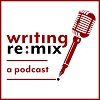Dan welcomes Riti Sharma on the podcast to discuss the many facets of the English language. Riti unpacks the complex linguistic landscape of India (where she lives & teaches), how examining the history of English exposes its complicated past, present, & future, essay writing as a genre, and the role orality plays in passing along knowledge & (re)connecting people, and so much more. This is a dense episode, so get ready to take a lot of notes.
Just a word about the sound, there were some significant internet issues that impacted the sound quality, but it didn’t impact the value of the ideas.

Riti Sharm holds a graduate degree and an M.Phil. in Comparative Literature, from India. Her research has been in the area of African Literatures in English, and Indian Literatures. She’s written a thesis on the short story in English in Nigeria. Riti Sharma’s work has taken her to avenues of literary studies where she’s analyzed the use of English as a lingua franca, and how it has been adapted across the world. She’s currently working on the usage of English in African and African-American Literatures, from both a research and pedagogical point of view. Her approach has always been directed towards how an alien language like English can be made into one’s own.
People and Texts Mentioned in the Episode
Some links may be affiliate links, which at no additional cost to you help to fund The Writing Remix. As an Amazon Associate, I earn from qualifying purchases.
- Salman Rushdie
- Meena Alexander
- William Shakespeare
- Chimamanda Ngozi Adichie
- Mikhail Bakhtin
- How it Feels to be Colored Me by Zora Neale Hurston
- Voices Remembering Slavery: Freed People Tell Their Stories
- Teaching to Transgress by bell hooks
- Audre Lorde
- Langston Hughes
- Monica Ali
- I Will Marry When I Want by Ngugi Wa Thiong’o
- The Trial of Dedan Kimathi by Ngugi Wa Thiong’o
- Raja Rao
- R.K.Narayan
- Amitav Ghosh
- Chinua Achebe
- Enid Blyton
- Linton Kwesi Johnson
“Being brought up in India is actually being something like being exposed to a very fluent linguistic background and a multi-linguist background. The idea is that you are not just a person who is bilingual, but you are a person who is constantly conversing with other people on an everyday basis with the help of more than one language.” –Riti Sharma
Tweet
“Inside my house I hear five different languages.” –Riti Sharma
Tweet
“When you’re looking at any kind of a language, especially when looking at something like the English language, you have to look at its history.” –Riti Sharma
Tweet
“In terms of how we’re approaching language it’s something that I think it should be made more flexible, it should be something that sets you free in terms of how you want to express yourself.” –Riti Sharma
Tweet
“The essay is something which is a very polemical kind of art form. It’s not always trying to bridge gaps, it’s rather trying to create a number of gaps.” –Riti Sharma
Tweet
“We need to start reading our works, our literatures, our books from a particular perspective, the perspective which is not just of the author’s, but something that connects the author to the reader.” –Riti Sharma
Tweet
“As readers, we need to understand that writers take a lot of effort and time to make certain things just visible and whatever is left which is not visible to the naked eye that is up to the reader.” –Riti Sharma
Tweet
“Orality makes it easier for us to connect with any kind of a language; we learn a language by first listening to the language, we don’t start writing immediately.” –Riti Sharma
Tweet
This episode was recorded on April 8th, 2022. Because we recorded via Zoom, there may be occasional audio hiccups. Our theme song is “4 am” by Makaih Beats. You can subscribe to the podcast on Apple Podcasts, Spotify, and Stitcher and follow us on Twitter @WritingRemixPod.
Humanities Podcasting Symposium 2022
Podcasting as Knowledge Sharing and Creation
We are excited to announce our 2022 Symposium on “Podcasting as Knowledge Sharing and Creation.” It will take place virtually on October 20-22. Register to attend here. This is a FREE EVENT!

The Humanities Podcast Network Symposium is returning this October 21st – 22nd, 2022 for our second virtual symposium. This year’s theme is Podcasting as Knowledge Sharing & Creation. Join us for conversations about the exciting world of education and informational podcasting and podcasters! Emerging and independent scholars are especially welcome.
Please register on Eventbrite to attend. Registration is free and open to all.
The symposium will be a series of one-hour roundtables with the second thirty minutes reserved for audience Q+A. If you registered to lead a session, we will contact you by early September to let you know your session and introduce you to your fellow roundtable participants so you can plan the session collaboratively. You are also welcome to attend the conference as an audience member and join in the conversations!
All sessions will be recorded and posted to our YouTube page for archival purposes.
Registration will remain available until the symposium begins.
Last year’s symposium went extremely well, and we are hoping to build on its success this year by focusing on the “Network” part of the HPN, strengthening the community of educational podcasters by giving us a space in which to make and grow our connections and friendships. We look forward to seeing you!

